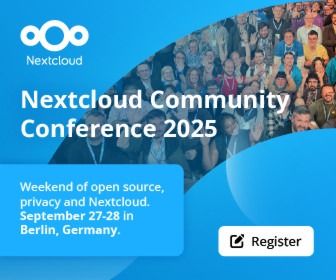It seems to us that enterprises have adopted “permissive” licenses because they see them as a way to “have their cake and eat it too.”

Roblimo’s Hideaway
The GPL has many good points, as well as restrictions that make it unappealing to many commercial software producers and users. Plus, over the years, it has accumulated tons of political baggage only marginally related to its utility as a software license. So should we consider the Fair License as a possible replacement? And, whether we like it or not, are permissive licenses — like the Fair License, BSD License, and MIT License taking over anyway?
One good thing about the Fair License is its simplicity. Here’s the whole thing:
- Usage of the works is permitted provided that this instrument is retained with the works, so that any entity that uses the works is notified of this instrument.
DISCLAIMER: THE WORKS ARE WITHOUT WARRANTY.
The license has been explained like this:
Can, cannot & must
- You can use the software for commercial purposes.
- You can grant/extend a license to the software.
- You can distribute original or modified (derivative) works.
- You can modify the software and create derivatives.
- You can change the software’s name if modified/distributed.
- You cannot place a warranty on the software licensed.
- You must include the full text of the license in modified software.
The Fair License is considered compatible with the GPL. Fine. Since it has so many fewer restrictions, and is so much simpler, why not use it instead of the GPL?
A good question. But before we try to answer it, we need to point out that the Fair License is not the same as the Fair Source License, which is described as follows:
- Not open source. Not closed source. The Fair Source License allows everyone to see the source code and makes the software free to use for a limited number of users in your organization. It offers some of the benefits of open source while preserving the ability to charge for the software.
Read the full license, and if you find yourself thinking, “That sounds impossible to enforce,” you aren’t alone. To me, the Fair Source License looks like another one of the many attempts I’ve seen to come up with something that looks like a free or open source license, but really isn’t.
This is right up there with the “based on open source” marketing line some software purveyors like to use. (But we’re not fooled, are we?)
Now back to the question: Can the Fair License replace the GPL? Should it replace the GPL?
I have no good answer to this pair of questions. Do you have an answer?
Robin “Roblimo” Miller is a freelance writer and former editor-in-chief at Open Source Technology Group, the company that owned SourceForge, freshmeat, Linux.com, NewsForge, ThinkGeek and Slashdot, and until recently served as a video editor at Slashdot. Now he’s mostly retired, but still works part-time as an editorial consultant for Grid Dynamics, and (obviously) writes for FOSS Force.





Doing the right thing isn’t always easy.
While there is nothing wrong with the BSD, MIT, Apache, and similar licenses by themselves, in practice they facilitate improvements to proprietary software.
If we care about preserving end user freedoms, we have to use licenses like the GPL, or at least like the Lesser GPL, Mozilla PL, and Eclipse PL. Those three are similar to each other but not always mutually compatible. And we have to do that with the code we write no matter whether the rest of the software in the world is 99% proprietary, 99% Apache licensed, or whatever.
> “Should it replace the GPL?”
Absolutely not!
It’s just another ‘permissive’ license. Like all the others, it is missing the core protections of the GPL.
It does not protect end users from freeloading proprietary developers from embracing/extending/and extinguishing the originally free software.
Sure, corporations love permissive licenses…think about that really hard and you may discover why they do and why it isn’t good for anyone else.
No, the GPL should not be replaced. Instead GPL should replace all other licenses!
It easier to understand why if we don’t simply call GPL “restrictive”.
It is really not about being restrictive, it is about being reciprocal. I agree to give you something to play with and you agree to keeping agreeing to it with others. It’s about sharing knowledge and building on shared knowledge without the feeling that some corporate entity will prevent others, down the line, to enjoy all the freedoms that you’ve enjoyed.
The most famous free and open source software in all human history is arguably the Linux kernel. It is GPLed, which means that everybody that releases any software based on it must release the source code of their modifications to the kernel. That hasn’t stopped even corporations from using it for more than a billion sold devices. Instead, it has prevented any one of them to completely dominate the market with its locked-up devices. No one vendor has the monopoly to sell Android-based systems. Not even google (they can force their hand because of the services they provide, but not for Android).
Now consider the BSD license, for instance. Apple has got hold of the BSD operating system for its proprietary and fully iron-handed-locked-up desktop, laptop and mobile products. Although Apple contributes a little with other free and open source projects, most of its knowledge, software modifications, integration, extensions to the BSD system is not shared to others. Why bother, they don’t need to.
This comment is not meant to be provoke a battle between Google (Android) and Apple (MacOS, IOS) loyalists.
Google also has its shares of flaws, for instance, avoiding using anything GPLed for Android (except the Linux kernel, because of luck, lack of compelling choice, it doesn’t matter). The lack of a full stack GPLed mobile operating system has being causing billions of users a lot of pain: they can’t update their own devices so that their fate is software obsolescence, unless they buy a new device *only to get hold of a new software* version, which was open sourced anyway (but the license, Apache, allowed the vendor to lock-it up).
So no. GPL should be more used, not less. If we buy into this “GPL is bad” misinformation (fake news, to use a current term), we will certainly start to see worse things, not better than today, in all humanity-related issues. Today it is difficult, but possible, to install a mostly user controlled operating system in some devices by using LineageOS, CarbonROM, ParanoidROM, or other community attempts to have a truly collaborative platform out there.
I want to be able to keep all my devices updated and useful for decades, not months. I also want to be able to create things and not be only allowed to buy things with my devices. I also want to be able to choose what to do with my devices and not be told what to do by my vendor.
@Robin
I’d like to add one thing:
> “The GPL has many good points, as well as restrictions that make it unappealing to many commercial software producers and users.”
Could you please enlighten us as to what restrictions make the GPL unappealing to users? I assert that there are no such restrictions.
I’ll grant you it is less appealing to some commercial (closed and proprietary) software producers because it doesn’t give them the ‘hit and run’ freedom they get from so-called ‘permissive’ licenses.
Closed source development can not keep pace with open source. This is now an unavoidable fact of software development. The only hope for those stuck in the proprietary past is to push for the adoption of the so-called ‘permissive’ licenses so they may build their closed-source castles upon massive open foundations. Ever greater marketing and financial pressure will be brought to bear to push for this outcome because a world of GPL software scares the crap out of them.
Don’t do the corporations’ work for them by spreading FUD regarding the GPL.
I can see the Fair License being useful for code snippets and examples — basically, for the sort of things you’d see in a programming book, or at Stack Exchange, w3schools, etc.
And/or for simple programs that are too small to be subject to copyright anyway (as we’ve discussed before, the downside of committing something to the public domain is that it doesn’t disclaim responsibility; this license solves that problem).
As a replacement for the GPL? No. I don’t see any overlap at all between software that you’d use the GPL for and software you’d use the Fair License for.
Can the Fair License replace the GPL? No
Should it replace the GPL? No
Now I too would like to know what restrictions, in your opinion, make the GPL unappealing to users. Please explain.
“The GPL has…restrictions that make it unappealing to many commercial software producers and users…”
Tough; get over it.
It also embodies the wisdom of many years of honing and fine-tuning.
“So should we consider the Fair License as a possible replacement?”
Absolutely not.
What happened to “if it ain’t broke, don’t fix it”?
“The GPL has many good points, as well as restrictions that make it unappealing to many commercial software producers and users.”
I fail to see how the GNU GPL is in any way unappealing for users.
For commercial software producers I would distinguish between two groups:
One group produces proprietary software, they are of course happy that they can take someone else code, do what they want without giving anything back, neither to the original author nor to the users. Some examples where already mentioned by others.
The other group are commercial software producers are those who use _and_ produce Free Software. For them the GNU GPL has a huge advantage over any non-protecting license: It provides a level playing field. It allows the commercial software producer to work in the open and collaborate with many other companies without the risk that one company rip-off the other one. Linux is a perfect example, all major IT companies contribute to it. Why? Because they know that everyone will have the same rights on the code, now and in the future. The same way another company will benefit from your changes, you will benefit from their changes.
That’s why protecting licenses are extremely important for both users and commercial software producers who don’t just want to rip-off existing Free Software projects but who really want to participate and benefit from collaborative software development.